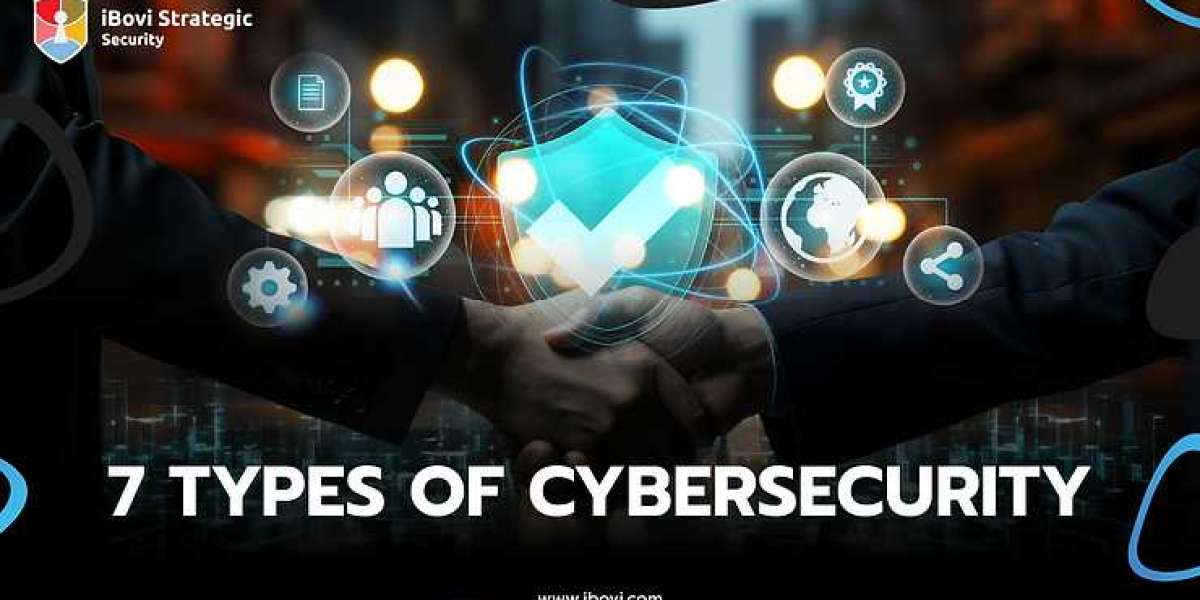7 Types of Cybersecurity Every Business Should Know About: A Guide by IBovi
In today’s digital landscape, where businesses depend heavily on technology, cybersecurity has become more critical than ever before. With data breaches, ransomware, and other cyber threats looming large, companies must adopt robust security measures to safeguard their assets, customers, and reputation. Whether you are running a small startup or a large corporation, understanding the various types of cybersecurity solutions is key to protecting your business. In this article, we’ll explore the 7 types of cybersecurity that every organization should consider, with insights from IBovi, a leading cybersecurity provider.
1. Network Security
Network security is one of the most fundamental aspects of cybersecurity. It focuses on protecting the integrity, confidentiality, and availability of data and resources as they are transmitted across or accessed through a network. For businesses, this means securing everything from local area networks (LANs) to wide area networks (WANs), as well as cloud environments.
IBovi specializes in creating advanced network security infrastructures that prevent unauthorized access, data breaches, and potential cyberattacks like Distributed Denial of Service (DDoS). Tools such as firewalls, intrusion detection systems (IDS), and intrusion prevention systems (IPS) are typically used to detect and block malicious traffic, ensuring that your network remains secure.
2. Application Security
As businesses become increasingly dependent on web applications and software, application security has emerged as a critical area of focus. This type of cybersecurity seeks to protect applications from threats like SQL injection, cross-site scripting (XSS), and other vulnerabilities that hackers can exploit.
At IBovi, application security is paramount. Our team conducts rigorous security testing, vulnerability assessments, and code reviews to ensure that your applications are secure from the inside out. Implementing security measures during the development phase, such as secure coding practices, can significantly reduce the risk of data breaches.
3. Information Security
Information security is designed to protect the confidentiality, integrity, and availability of data, both in storage and in transit. This type of cybersecurity ensures that sensitive information, such as customer data, intellectual property, and financial records, is protected from unauthorized access or alteration.
IBovi helps businesses implement robust data encryption, access control mechanisms, and secure storage solutions to ensure that critical information remains safe. Whether it’s securing employee data or customer information, information security measures are a must-have in today’s data-driven business world.
4. Cloud Security
As more businesses transition to cloud-based infrastructures, cloud security has become increasingly important. This type of cybersecurity involves protecting cloud services, applications, and data from unauthorized access, data loss, and other threats. While cloud providers often offer built-in security features, businesses must still take steps to secure their cloud environments.
IBovi offers comprehensive cloud security solutions, including encryption, multi-factor authentication (MFA), and identity and access management (IAM) to help businesses safeguard their cloud-based resources. By using these solutions, companies can ensure that their data is protected, even as it moves between on-premise and cloud environments.
5. Endpoint Security
With remote work becoming more prevalent and mobile devices multiplying, endpoint security has become a crucial aspect of modern cybersecurity. Endpoint security refers to the protection of end-user devices such as laptops, smartphones, tablets, and desktops. These devices are often the first point of entry for cybercriminals looking to exploit vulnerabilities.
IBovi provides enterprise-grade endpoint security solutions that safeguard devices from malware, ransomware, and other types of attacks. By deploying antivirus software, endpoint detection and response (EDR) tools, and device management systems, IBovi ensures that every endpoint connected to your network is properly protected.
6. Identity and Access Management (IAM)
In a world where businesses rely on employees and third parties to access sensitive information, it’s essential to have a strong Identity and Access Management (IAM) system in place. IAM ensures that only authorized individuals or devices can access specific data or systems. This typically involves tools like multi-factor authentication (MFA), single sign-on (SSO), and role-based access control (RBAC).
IBovi offers IAM solutions designed to verify user identities and enforce strict access policies, minimizing the risk of unauthorized access to your systems. These solutions help businesses maintain compliance with data protection regulations like GDPR and HIPAA, while also preventing internal and external security breaches.
7. Disaster Recovery and Business Continuity
While most cybersecurity measures focus on preventing attacks, it’s also crucial to plan for the worst-case scenario. Disaster recovery (DR) and business continuity (BC) planning are designed to ensure that a company can continue operations in the event of a cyberattack, natural disaster, or system failure.
IBovi works with businesses to develop disaster recovery plans that include data backups, off-site storage solutions, and emergency response protocols. This ensures that, even in the event of a cyberattack or system failure, your business can recover quickly and minimize downtime.
Conclusion
In today’s digital-first business environment, cybersecurity is no longer optional—it’s a necessity. Understanding the different types of cybersecurity, from network and cloud security to endpoint protection and disaster recovery, can help businesses safeguard their assets and avoid the costly consequences of data breaches and cyberattacks. IBovi is here to help businesses of all sizes implement tailored cybersecurity strategies that provide robust protection across all areas of your operations.







